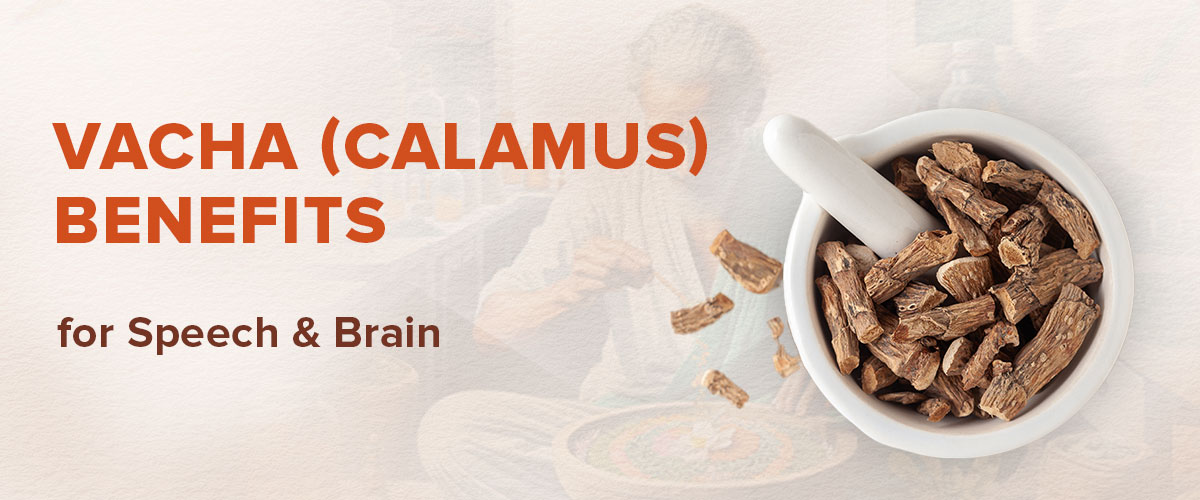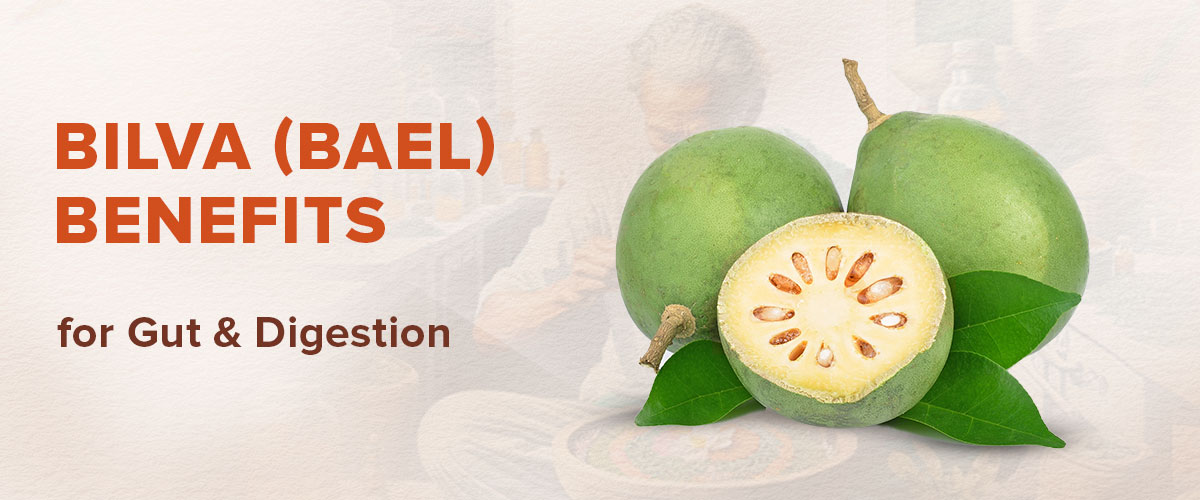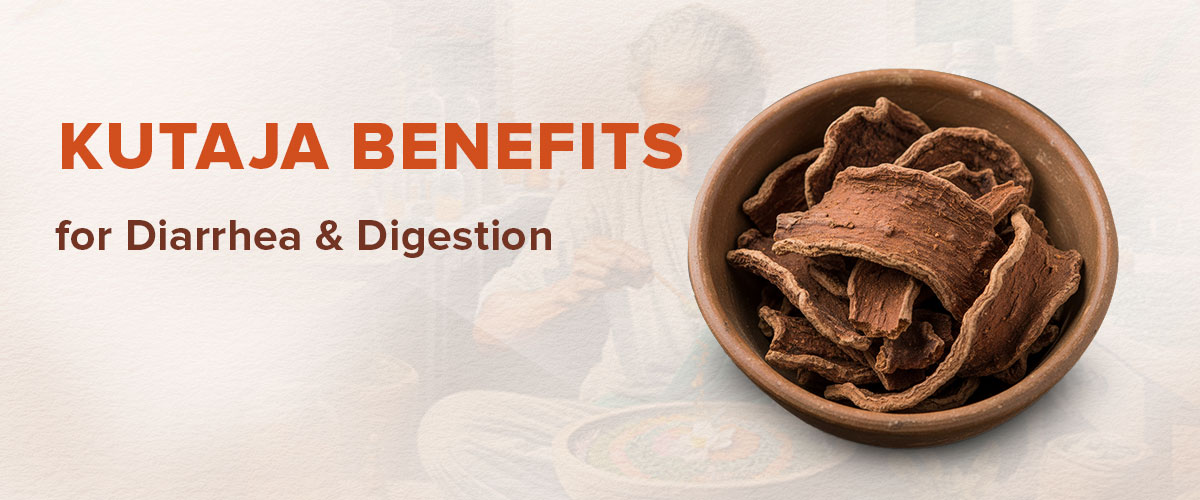Jeera (Cumin): Benefits, Uses, and Healing Properties

Jeera is a small annual herb, which is called cumin in English. The botanical name for jeera is Cuminum cyminum. It is called "Jira" or "Jeeraka" in Sanskrit and ancient texts. Indian kitchens use cumin a lot, but it has an even older story in Ayurveda.
Jeera is becoming more and more popular as both a tasty spice and a natural medicine. India grows about 70% of the world's cumin and eats almost 90% of what it grows.
In this blog, we will explore how Jeera can help your digestion, metabolism, immune system, and more. We'll talk about how this old spice fits into modern life and why it should still be a big part of your health routine.
What is Jeera & Its Ayurvedic Properties?
Ayurveda sees jeera as a powerful healer. It has been used to help with stomach pain, bloating, and indigestion and is especially good for gas, diarrhoea, and a weak appetite. Let us see Ayurveda describes Jeera:
- Taste (Rasa): Jeera tastes strong and a little bitter. This kind of taste helps awaken your digestive fire (Agni), making it easier for your body to break down food.
- Guna (Qualities): Ayurveda says that Jeera is light and dry. This means it doesn't make you feel heavy and helps get rid of extra moisture, bloating, and tiredness. It's especially helpful if you often feel tired or dull after eating.
- Potency (Virya): Jeera is believed to be hot in nature. It keeps your digestion strong and helps your metabolism, especially when you feel cold or sluggish.
- Post-Digestive Effect (Vipaka): Once digested, Jeera has a pungent post-digestive effect. It keeps supporting your body even after the meal is over, which helps your body absorb nutrients and get rid of waste more effectively.
Jeera Benefits for Your Health
Let us now understand some of the main jeera benefits for your health:
1. Helps with Indigestion and Bloating
Ayurvedic View: Ayurveda says that Jeera increases your digestive fire (Agni), which helps you digest food better and take in nutrients properly. It also helps balance the Vata and Pitta doshas, which are often to blame for gas and acidity problems.
Modern View: This is also backed up by modern science. Jeera helps stimulate digestive enzymes and has carminative properties, which means it helps release stuck gas and calms your stomach.
2. Helps You Lose Weight
Ayurvedic View: Ayurveda says that Jeera can help your metabolism and get rid of toxins (Ama). It is also light and dry, which helps get rid of extra Kapha, which is the dosha that makes you gain weight and feel heavy.
Modern View: When combined with healthy habits, cumin has been shown to help people lose weight, lower their BMI, and shrink their waist.
3. Helps Keep Gas and Acidity in Check
Ayurvedic View: Ayurveda says that Jeera can help cool down too much heat (Pitta) and reduce gas (Vata) after meals.
Modern View: Modern studies support the claim that cumin is a great natural remedy for heartburn and gas because it helps neutralise stomach acid and relaxes the muscles in the intestines.
4. Improves your Immune System
Ayurvedic View: Jeera's deepan (appetiser) and pachan (digestive) effects help your gut work better, which helps your body's defences as a whole.
Modern View: Cumin has antimicrobial and antioxidant properties that help fight infections, especially when the seasons change, according to modern science.
Jeera for Specific Health Conditions
Apart from these general health issues, let us now see some of the main jeera benefits for specific health conditions:
Menstrual Cramps and Discomfort
If you deal with painful periods or bloating every month, Jeera can help. Ayurveda says that painful cramps, which are called Kasht-aartava, happen when Vata is not in balance. Modern research also shows that cumin is high in iron, which helps replace the blood lost during menstruation and makes you feel less tired.
Sleep Issues or Restlessness
Are you having trouble falling asleep? Jeera could be a simple way to help you sleep. Ayurveda says that getting enough sleep is important for healing, and Jeera helps calm the nervous system. In Ayurveda, restful sleep is key to healing, and Jeera helps you relax.
Diarrhoea or Loose Stools
Ayurveda says that diarrhoea is caused by low digestive fire and high Vata. Recent studies have shown that cumin has tannins and flavonoids that help stop excessive bowel movements.
Stomach Spasms
Colic is a sharp stomach pain that happens when gas gets stuck. Jeera's carminative and Vata-pacifying properties help get rid of gas and ease pain naturally. After meals, drink Jeera powder with water to relax your stomach.
High Blood Pressure
Jeera may help you naturally if you're worried about your blood pressure. It can help with mild high blood pressure by relaxing blood vessels and improving circulation. For a heart-healthy touch, sprinkle roasted Jeera powder on salads or soups.
Skin Issues
Jeera can help your skin as well as your stomach. Jeera can help get rid of blackheads, dullness, and small infections when mixed with honey and used as a paste. This is because it kills bacteria and fungi. For clearer skin, try a simple face pack made of honey and Jeera powder.
Low energy and Anemia
Low iron could be the cause of your tiredness, weakness, or dizziness. Jeera is full of iron and can help raise hemoglobin levels, which makes it a natural way to treat anemia. A little bit of Jeera powder in warm water every day can give you more energy.
Heart Health and Cholesterol
Cumin may help lower bad cholesterol (LDL) and triglycerides while raising good cholesterol (HDL). If you want to keep your heart healthy, this is a good thing to add to your diet. For daily heart health, add Jeera to soups, dals, or buttermilk.
Who Should Use Jeera?
While jeera is a natural healing herb that is good for almost everyone, it helps women, kids and elderly people the most.
Jeera for Women
Jeera offers many benefits for women at every stage of life. Jeera can help with period pain, bloating, and fatigue during your cycle. It also helps make up for blood loss during your period and makes you less tired because it has iron in it.
Jeera for Kids
Kids can also benefit from jeera, especially if they have gas, a tummy ache or trouble digesting food. It's a mild spice that doesn't upset the stomach and helps make the digestive system stronger.
Jeera for Seniors and Older Adults
Digestion usually slows down as you get older. Jeera helps by speeding up your metabolism, making gas easier to pass, and keeping you from getting constipated. It also helps seniors with heart health, blood sugar control, and immunity, which are all very important as you age.
Can Jeera Be Taken with Other Medicines?
Jeera is natural, but that doesn't mean it's always safe, especially if you're already taking other medicines. It's important to know how it might affect them.
Be careful if you take blood thinners. When taken in large amounts, jeera may slightly raise the risk of bleeding. So, before you start using it regularly, talk to a Jiva Ayurveda expert.
If you take diabetes medicine, you should also keep an eye on your blood sugar. Jeera can lower blood sugar levels, and if you mix the two, your sugar levels might drop too low.
It's usually safe to eat Jeera, but if you have other health problems or are pregnant, you should be careful about using it as a daily remedy or supplement.
If you're not sure, it's best to talk to a Jiva doctor before adding any herb, even something as common as Jeera, to your daily routine.
Is Jeera Safe? Who Should Avoid It?
When used in everyday cooking or as a mild home remedy, jeera is usually safe. But just like any other natural ingredient, it might not be good for everyone, especially if you take a lot of it or use it as a health supplement every day.
Possible Side Effects of Jeera
Some people may have mild side effects, such as:
- Heartburn if you eat too much of it
- A dry throat
- Lower blood sugar, which can make you feel lightheaded in rare cases
Allergic reactions are very rare, but they can happen, especially if you have a history of spice allergies. Stop using Jeera right away if you feel dizzy, have a rash on your skin, or have trouble breathing after taking it.
Always pay attention to your body. Also, talk to a Jiva-certified Ayurvedic expert. Based on your body type (Prakriti) and health, they can help you figure out the right amount or suggest a safer option.
Jeera vs Other Ayurvedic Herbs
Let us now compare and see how jeera compares with other good Ayurvedic herbs like ajwain and saunf.
Jeera vs Ajwain (Carom Seeds)
|
Feature |
Jeera (Cumin) |
Ajwain (Carom Seeds) |
|
Best Use |
Digestion, bloating, acidity |
Gas, indigestion, colic pain |
|
Nature |
Mildly heating |
Strongly heating |
|
Effect on Body |
Supports digestion gently |
Stimulates strong digestive action |
|
Effect on Mind |
Calms and grounds |
Slightly stimulating |
|
Suitable For |
Most body types (Tridoshic) |
Mainly Kapha and Vata issues |
Jeera vs Fennel (Saunf)
|
Feature |
Jeera (Cumin) |
Fennel (Saunf) |
|
Best Use |
Boosting digestion, reducing bloating |
Cooling digestion, soothing acidity |
|
Nature |
Mildly heating |
Cooling |
|
Effect on Body |
Speeds up digestion |
Calms the stomach lining |
|
Effect on Mind |
Stabilising and grounding |
Relaxing and mildly uplifting |
|
Suitable For |
Vata, Pitta, and Kapha types |
Pitta and Vata types mostly |
Conclusion
Herbs like Jeera are simple, which is what makes them so healing. Jeera helps with digestion, immunity, and hormonal balance in a gentle, natural way. And if you use it right, it can be a daily health boost for your body.
But keep in mind that everyone is different. What works great for one person might not work at all for another. That's why it's always better to get professional help, especially if you're using herbs to treat health problems or using them with modern medicine.
If you have a health problem and want personalised advice, call our Jiva experts at 0129-4264323.
FAQs
What are the health benefits of jeera?
Jeera is known for helping with digestion, reducing inflammation, and protecting against free radicals. It helps you deal with gas, digest food better, speed up your metabolism, and boost your immune system.
Is cumin good for kidney patients?
Cumin might help with digestion and inflammation, but if you have chronic kidney problems, you should talk to a Jiva doctor before using it every day.
Does jeera have vitamin B12 in it?
No, jeera does not have vitamin B12 in it. Vitamin B12 is mostly found in foods that come from animals. Jeera is rich in iron and other minerals.
Is jeera hot or cold for the body?
Ayurveda says that jeera is mildly warming. It heats up your digestive fire (Agni) without making your body too hot, so most people can take it every day.
What happens to our bodies when we drink jeera water every day?
If you drink jeera water every day and live a healthy lifestyle, it can help you lose weight, reduce bloating, improve digestion, and control blood sugar.
When is the best time to take cumin?
You can take cumin in a number of ways, but drinking jeera water first thing in the morning or taking cumin powder after meals is the best way to help your digestion.
Can jeera help keep blood pressure in check?
Yes, Jeera might help you lower your blood pressure naturally. It works by relaxing your blood vessels and making blood flow better. But if you already take blood pressure medicine, you should talk to your doctor before using it every day.
Is jeera good for your skin?
Yes. Jeera has natural antifungal and antibacterial properties. You can use it as a paste with honey to get rid of blackheads, dullness, and small skin infections. Jeera water also helps keep skin clear by making digestion better and getting rid of toxins.



 Prev
Prev





























